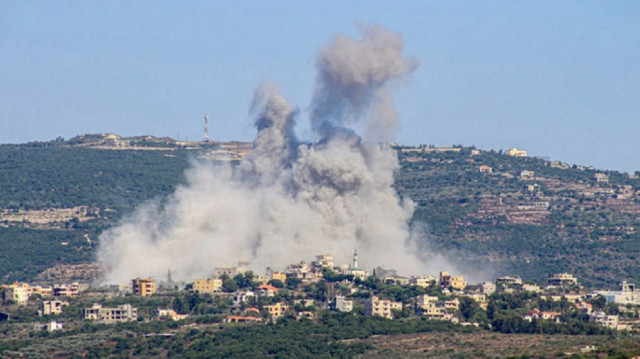
Israel continues airstrikes on Syria, citing concerns over strategic weapons
After Israel launched a wave of airstrikes on Syria following the fall of the Baath regime, Tel Aviv sought to justify its attacks by expressing concerns over strategic weapons in its northeastern neighbor.
Israel claimed that its military attacks have targeted chemical weapons, long-range missiles, and other military systems which it said could fall into the hands of extremists after the fall of deposed President Bashar al-Assad, who fled to Russia after anti-regime groups took control of the capital Damascus early Sunday.
Israeli Foreign Minister Gideon Saar claimed that Tel Aviv's recent actions in the occupied Golan Heights as "limited and temporary," adding that its primary focus was on the security of the country and its citizens.
Saar also said indirect negotiations between Israel and the Palestinian group Hamas continued, with a focus on a possible prisoner-hostage exchange. He did not provide further details.
Following directives from Prime Minister Benjamin Netanyahu and Defense Minister Israel Katz, Israeli forces entered the buffer zone in the Golan Heights, an area under Tel Aviv's occupation for decades.
Netanyahu has called the occupation "temporary."
Images released by the Israeli military showed soldiers and armored vehicles in the buffer zone, further consolidating Israel's hold on the region.
After a period of relative calm, clashes between Assad regime forces and anti-regime groups reignited on Nov. 27 in rural areas west of Aleppo, a major city in northern Syria.
Over 10 days, opposition forces launched a lightning offensive, capturing key cities and then, on Sunday, the capital, Damascus. The rapid advance, supported by defecting military units, led to the collapse of the Assad regime after 13 years of civil war.

